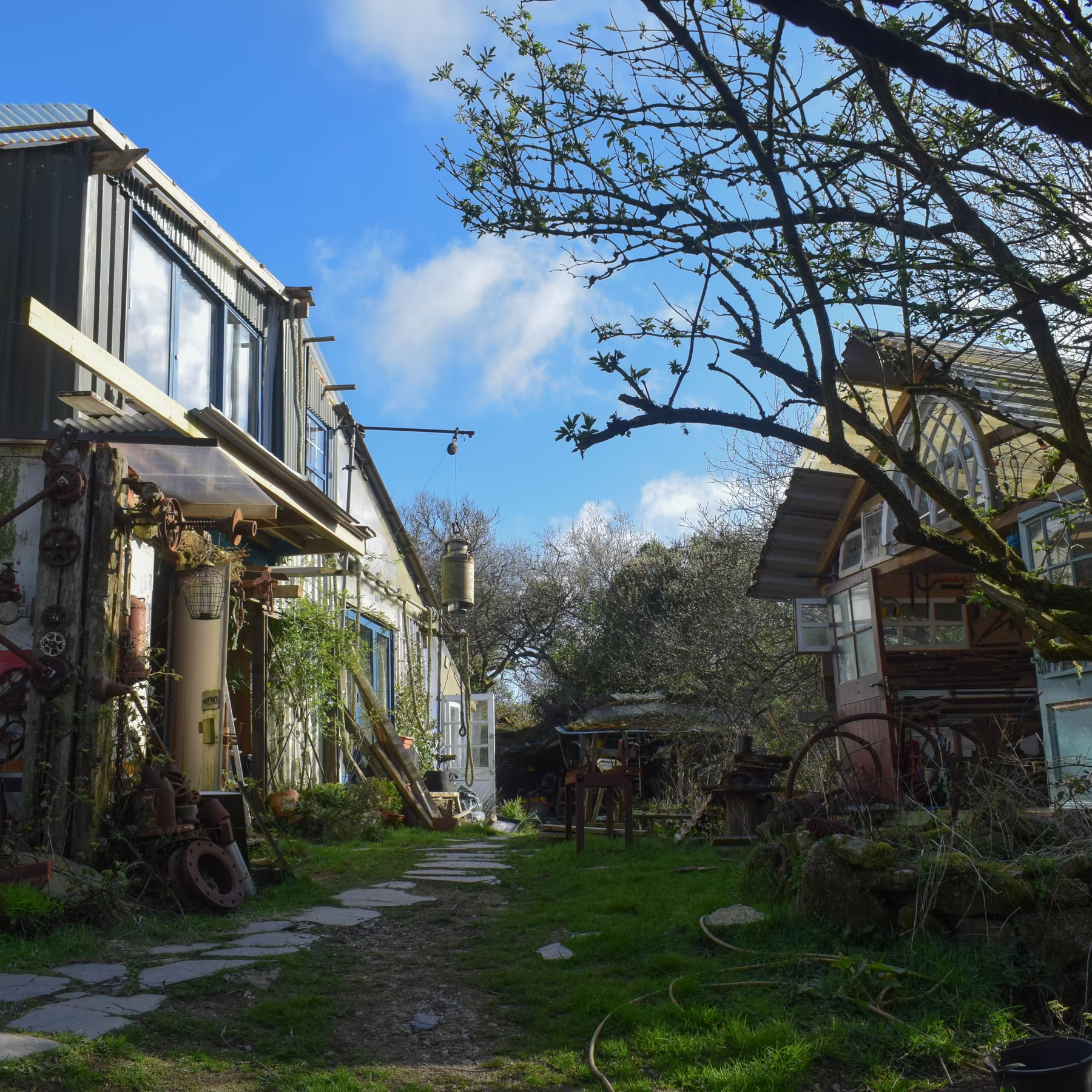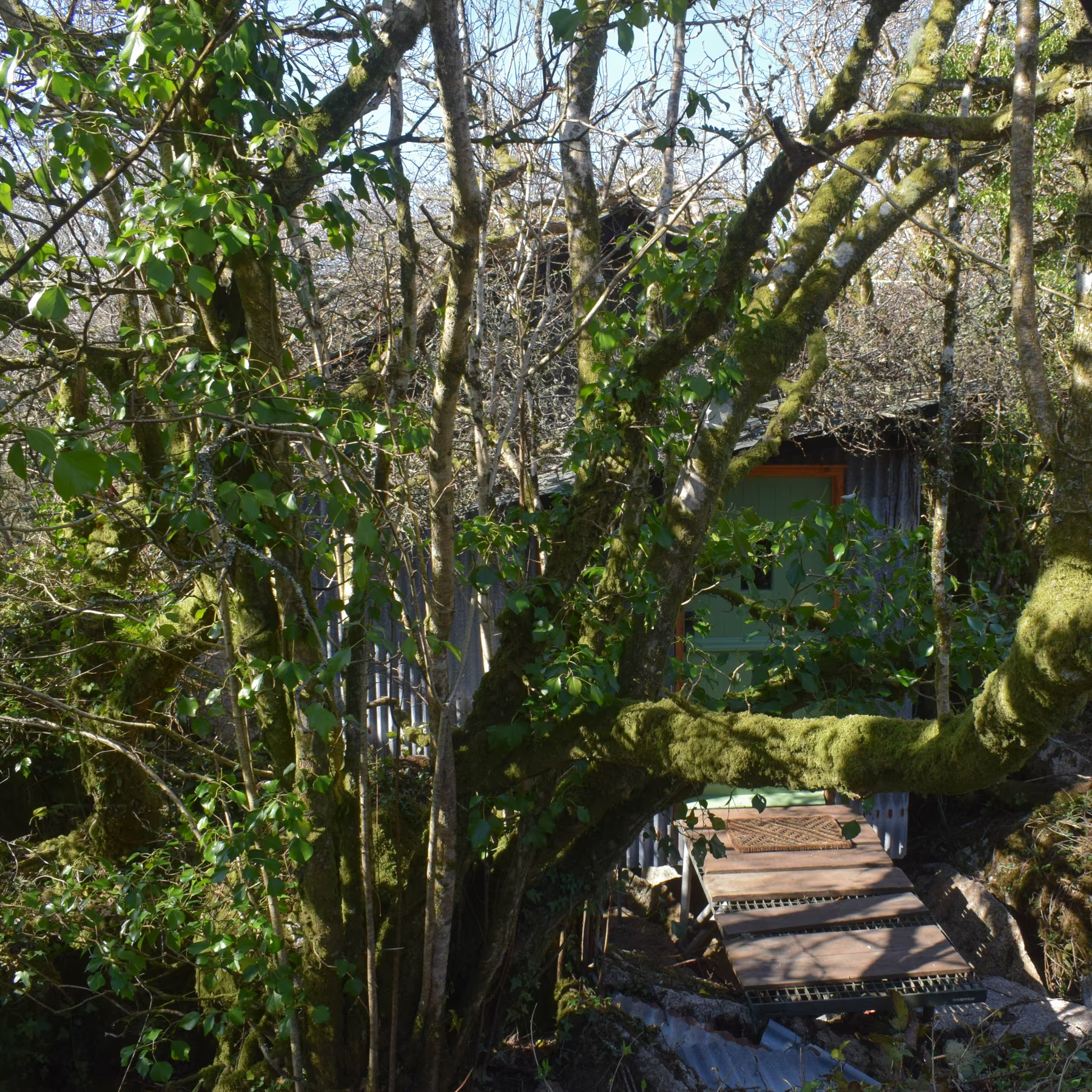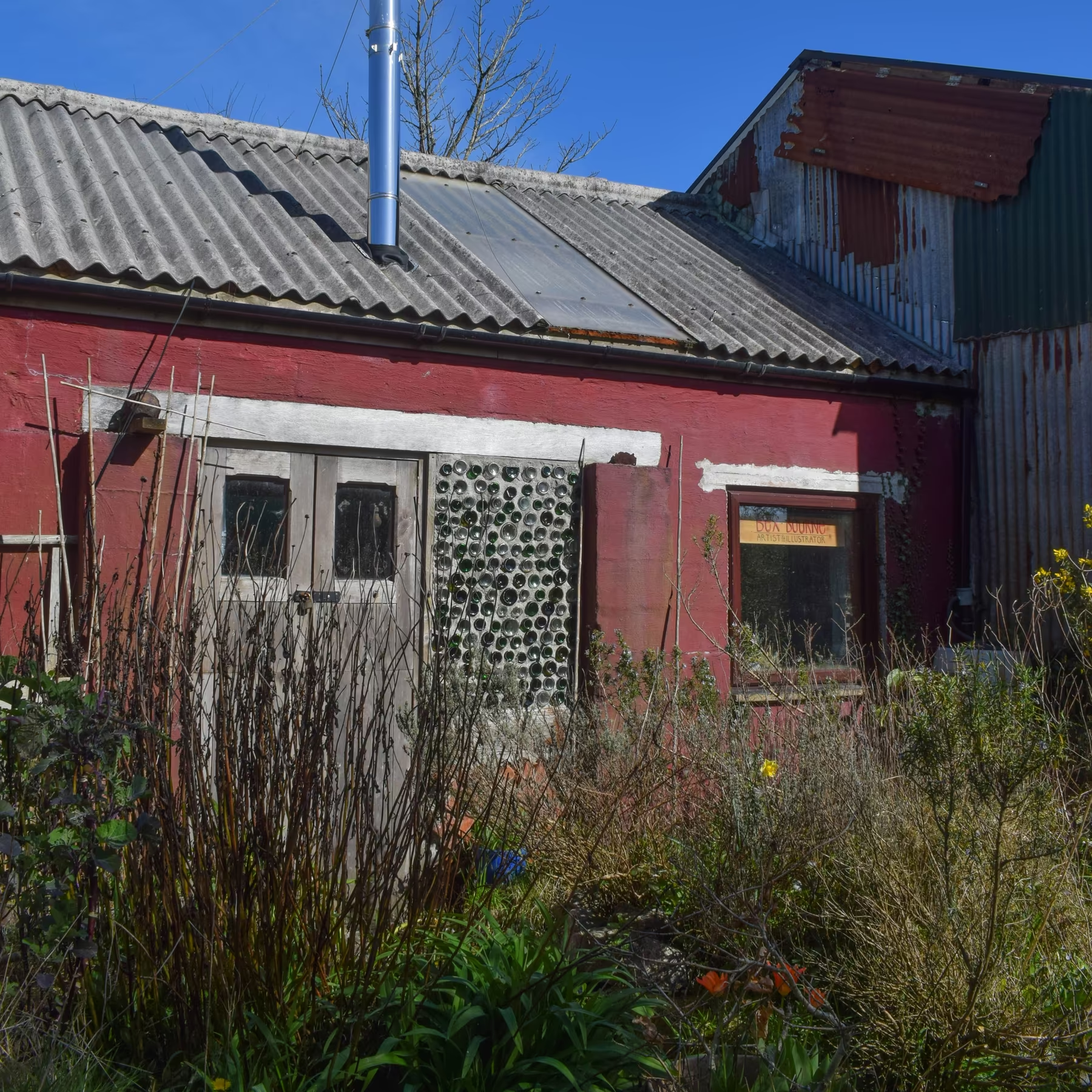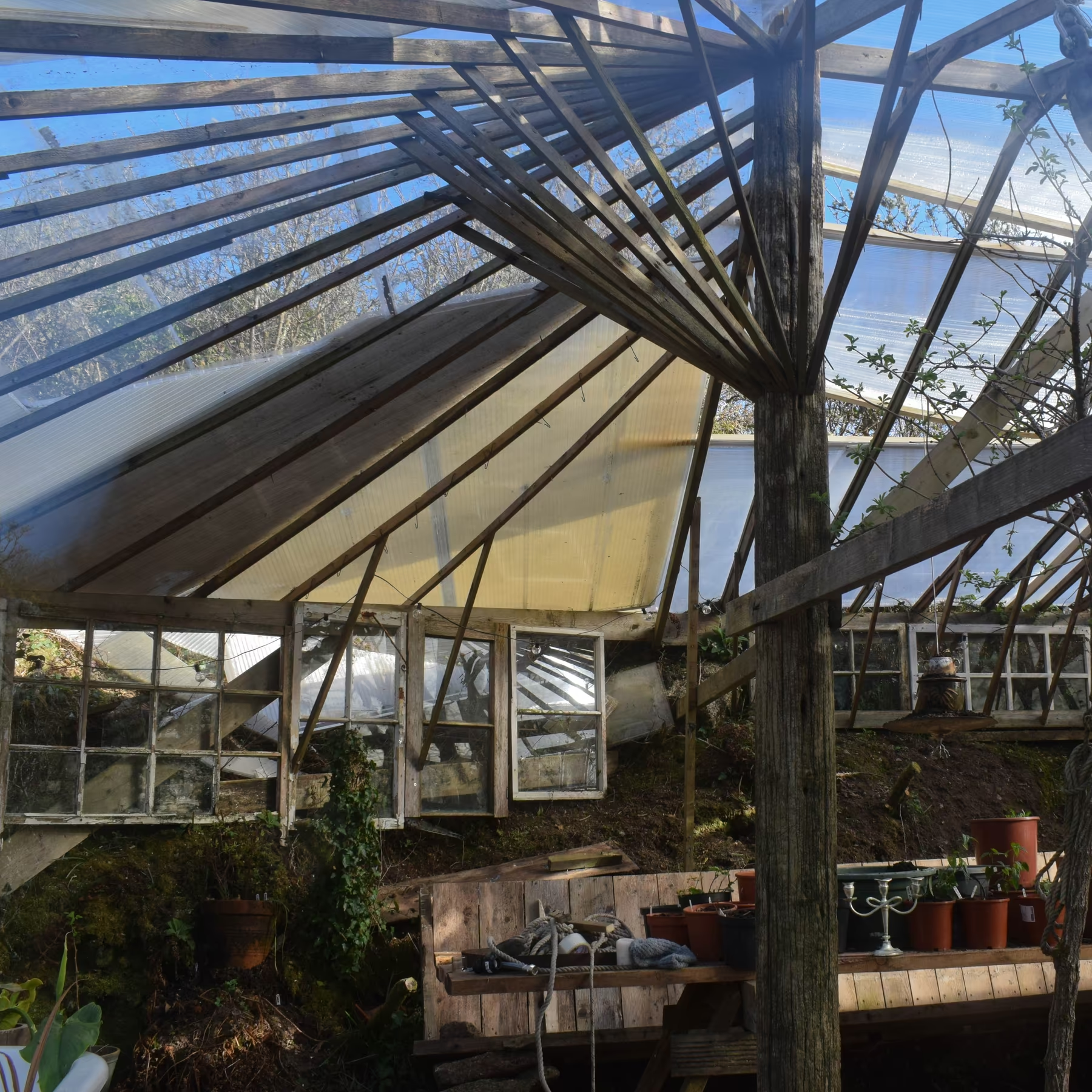Trevone Quarry - Live/Work,
Unknown type in Constantine, Mabe & Mawnan
Completed: 2021
About this home:
What was once a scar in the landscape has been transformed into an incredible nature reserve with acres of orchards, bees, nesting boxes and native woodland. 12 creative microbusinesses are based on site, ranging from stone masons to recording studios to distilleries to blacksmith forges. All the workshops and 'temporary' dwellings use recycled materials: including scaffolding poles, sheet metal and recycled windows. Agricultural work is exchanged for rent. Rob buys the materials and pays their labour as a rent holiday - this is a verbal agreement that filters out people who can't inherently trust. This community-focused development challenges traditional restrictions, supports rural creatives and demonstrates sustainable a live/work model.
Features:
Building close to trees
Challenging Access
Recycled Sanitary Ware
Off-Grid
Solar Panels
Affordable Housing
Co-Housing
Innovative Materials
Innovative Construction Techniques
Multi generation living
Recycled floors
Landscape House
Low Cost Construction
Community Agriculture
Women in Construction
Recycled Materials
Recycled Windows
Appeal Decision
Planning Insights:
48 months at planning
They relinquished the quarrying rights in exchange for industrial use of the land, for creative workshops. After receiving enforcement notices, they built a case highlighting sustainability, community benefit, biodiversity gain and policy compliance. People live in 'temporary structures'. Through persistent appeals, legal challenges, and presenting a strong socio-economic case, they eventually won planning permission, transforming the site into a unique live-work community and nature reserve.
Project Challenges
Emotional labour of fighting for planning
Applying for planning in retrospect or waiting to be enforced upon is a highly stressful ordeal. Justifying your community through appeal is expensive, time-consuming and emotionally exhausting.
Stringent planning system
The planning system doesn't support grassroots development and has strict land use definitions that are hard to change. There is not much precedent on how other sustainable communities have complied.
Sustainable building without building regs
Rob argues that experimental eco self-builds should be exempt from building control like other temporary structures. They build only what is essential: 'sufficient houses' have low embodied energy.
Our friendly team is here to help.
info@livedin.co.uk
Office
Come say hello at our office HQ (by appointment only)
St Marys Mill, Chalford, Stroud, Glos
Phone
Mon-Fri from 9am to 5pm.
01453 733 913





